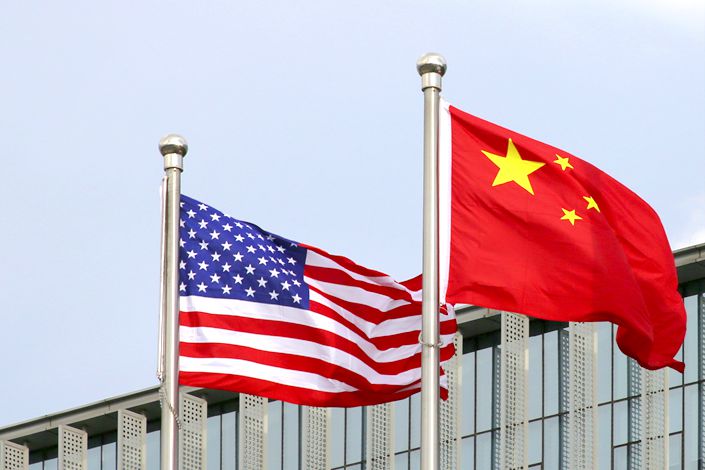
Once Biden Takes Office, US-China and Taiwan-China Relations Will Never Go Back
Mao Zedong said, “Regarding strategy, despise the enemy; regarding tactics, respect the enemy.” Regarding strategy, Chinese Communist Party leaders appear to have planned ahead and are emphatic that all they have to do is stick to their own agenda. Tactically speaking, however, the CCP cannot ignore the effect that changes in the international environment will have on their strategy. What is obvious is that the COVID-19 pandemic, plus the U.S. election, have forced CCP leaders to take stock of the situation and tactically adjust.
First, the U.S.-China relationship will not return to what it once was. It won’t go back to being a relationship based on mutual respect, benefit and “win-win cooperation” as during Barack Obama’s time in office, and it certainly won’t return to the constructive strategic partnership of the Bill Clinton era. In the past, China and the U.S. used cooperation to define competition; now, they use competition to define cooperation. Although Biden will be a weak president, he will not abandon the “America First’ ideology. Because he is an advocate of multilateralism, he will replace Donald Trump’s method of going at it alone as a wolf pack to restrain the rise of China.
Second, cross-strait relations will not return to what they once were. They won’t return to the “great exchange, cooperation and development” relationship seen during Ma Ying-jeou’s eight years in office, or even to the cold peace of Chen Shui-bian’s tenure. This is because antagonistic public opinion has increased on both sides of the strait, and authorities communicate with each other. Polling has revealed that the percentage of Taiwanese people who advocate for Taiwan’s independence not only exceeds that of those who want unity, but approaches the percentage of people who advocate for maintaining the status quo indefinitely.
In the face of the previously mentioned changes in U.S.-China and cross-strait relations, the CCP will engage in the simultaneous struggles of containment (of China) versus anti-containment and succession (by Taiwan) versus anti-succession. These two struggles are intertwined, and both concern the CCP regime’s authority to govern. They will also affect Taiwan’s survival and development.
Regarding anti-containment, the CCP will use the economy as an instrument to reward and punish, applying differential treatment with respect to U.S. allies. For example, regarding the recent conflict between the CCP and Australia, Jie Chen, associate professor at the University of Western Australia, said that the CCP is making an example of Australia to warn U.S. allies that if it follows along with U.S. diplomacy, the CCP will retaliate. Additionally, making an example of Australia is a warning to the U.S. The CCP is not weak and can destroy the economies of U.S. allies, which should give the U.S. pause when it strengthens an alliance to contain the CCP.
Regarding anti-succession, the CCP will continue to use both strong-arm tactics and gentler methods with Taiwan: economic benefits, diplomatic pressure and military threats. President Tsai Ing-wen stuck to a policy of neither provoking nor rashly getting too close to China, which has caused cross-strait relations during her first presidential term to remain peaceful and stable. However, after the U.S. election, the relationship has not adapted to the rapid changes both within and beyond Taiwan. At the very least, Taiwan will be unable to extricate itself from the middle of the CCP’s two aforementioned struggles.
The current cross-strait situation is grim. The famous novel “Romance of the Three Kingdoms” begins, “The empire, long divided, must unite; long united, must divide.” If this is how cross-strait relations will eventually play out, then finding a way to build mutually beneficial cooperation should achieve positive results and avoid disaster. In a recent article in The China Review, Zhidong Hao, professor emeritus with the sociology department at the University of Macau, pointed out that if China and Taiwan don’t regard the other as enemies, and as long as the fundamental interests of each side are unharmed, they might return to the principles set forth in the Guidelines for National Unification and the 1992 Consensus of “one China, different interpretations.” They could cooperate to build a cosmopolitan, EU-style Chinese confederation that Hao calls a “confederation-style federation.”
Professor Hao’s theory is worth noticing. As it says in “The Art of War,” “Rely not on the likelihood of the enemy’s not coming, but on our own readiness to receive them.” Taiwan cannot pin its hopes for security on the goodwill of others. We must have the ability, and wisdom, to defuse the crisis in the Taiwan Strait. If the other side of the strait chooses negotiation over confrontation while Taiwan chooses to reject China’s “One Country, Two Systems” principle, Taiwan should ask itself, “Have we already researched and planned countermeasures in case we need them?”
The author is an honorary professor from the Tamkang University Graduate Institute of China Studies.

